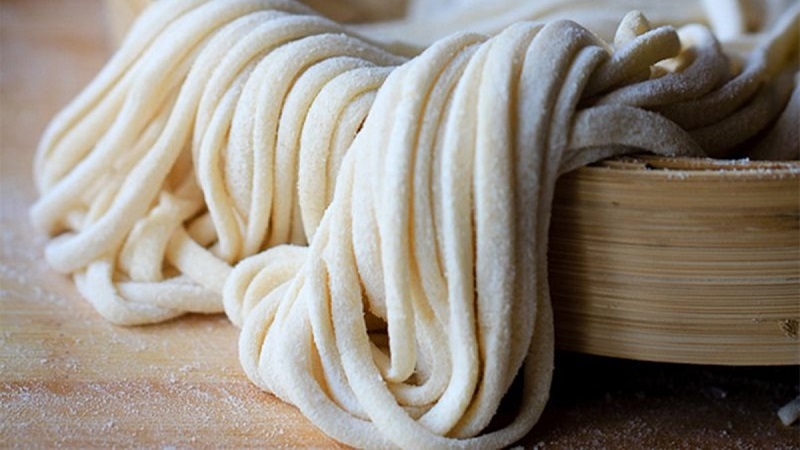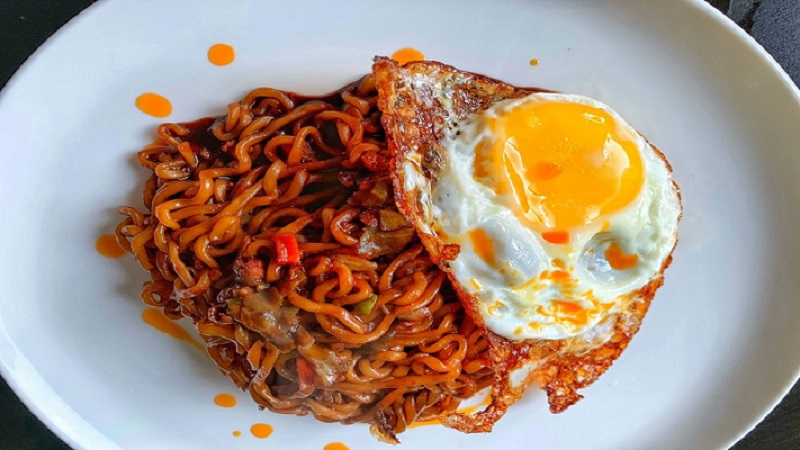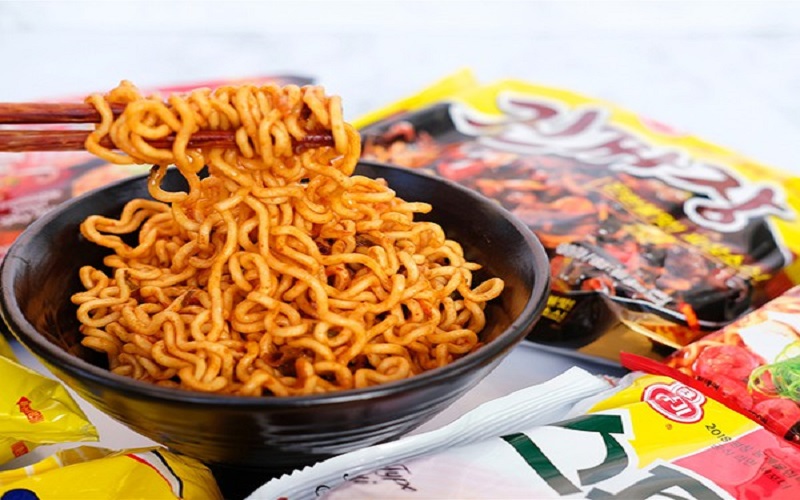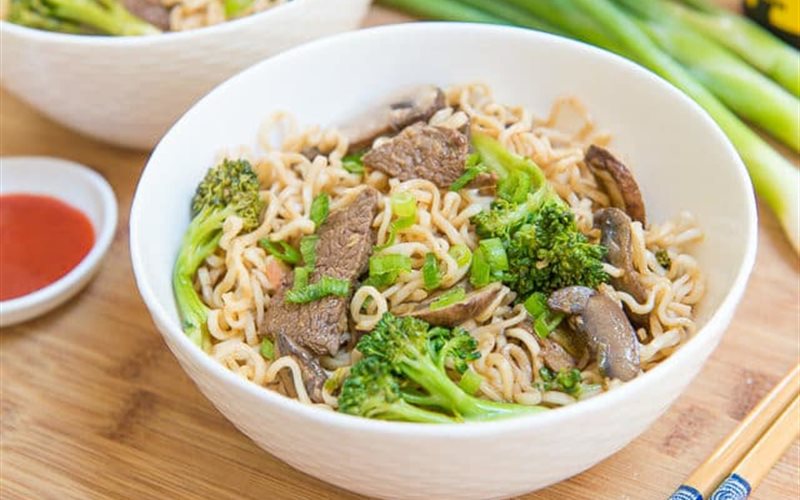Nutrition and a balanced diet are essential to help our bodies function and perform efficiently. In this article, we will share information about the calorie content in popular noodles among Vietnamese consumers today (egg noodles, string noodles, etc.). We will also explore whether noodles can cause obesity if consumed regularly and if they are truly harmful to our health.
1. How Many Calories Are in Egg Noodles?
According to the United States Department of Agriculture, a bowl of egg noodles typically contains 280 calories, 58g of carbohydrates, and 11g of protein. However, dishes made with noodles are incredibly diverse, and the cooking methods vary, so the nutritional content, including the calorie count, can differ. This variation depends on the additional ingredients used to prepare the noodle dish.
 A bowl of egg noodles typically contains 280 calories.
A bowl of egg noodles typically contains 280 calories.
2. How Many Calories Are in String Noodles?
Recent statistics show that 100g of string noodles contain 260-280 calories. This means that, on average, a bowl of string noodles usually contains around 75 calories. This number is relatively high compared to many other ingredients and foods.
Similar to egg noodles, it is challenging to determine the exact calorie count in string noodle dishes because it depends on the ingredients and components added by the cook to create the final product.
You can check out products like Acecook, Vifon, etc., for a quality and healthy noodle experience.
 100g of fresh noodles contain approximately 260-280 calories.
100g of fresh noodles contain approximately 260-280 calories.
3. How Many Calories Are in Fried Noodles with Eggs?
Let’s do a simple calculation.
100g of noodles contain 190 calories. One chicken egg contains 166 calories. Total: 190 + 166 = 356 calories
Thus, a plate of fried noodles with eggs, a simple and easy-to-make dish, will contain a total of 356 calories. This recipe can also include additional ingredients such as carrots, onions, mushrooms, shrimp, and more.
 A plate of fried noodles with eggs, a simple dish, contains a total of 356 calories.
A plate of fried noodles with eggs, a simple dish, contains a total of 356 calories.
Therefore, we can see that the calorie content of each noodle dish varies depending on the amount and type of ingredients used in the preparation. However, overall, they tend to have a relatively high-calorie count.
4. Will Eating Noodles Regularly Make Me Gain Weight?
First and foremost, we need to understand that it’s not just noodles, but any food can lead to weight gain if consumed in excessive amounts relative to your level of physical activity.
 Not only can it lead to weight gain, but eating noodles too frequently can also harm your health.
Not only can it lead to weight gain, but eating noodles too frequently can also harm your health.
Simply put, when the number of calories you consume is greater than the number of calories you burn, and the nutritional composition of those calories is imbalanced, you will gradually gain weight.
Now, let’s answer the main question: Will eating instant noodles regularly make me fat? Compared to other foods, eating instant noodles too often will indeed make you gain weight and may even accelerate the process.
Why is this? The primary ingredients in most instant noodle products are refined flour, and they contain very little essential nutrition like fiber and vitamins. Regular consumption of instant noodles can cause a rapid increase in blood sugar levels and lead to fat accumulation in the body.
Excessive fat accumulation from eating instant noodles regularly can increase health risks. In addition to obesity, this habit is also a direct contributor to various other diseases, including digestive issues, cardiovascular problems, and diabetes.
5. How to Eat Noodles Without Gaining Weight
Nowadays, there are numerous ways to prepare and enjoy noodle dishes in a “healthy” way. Here are some specific methods you can apply:
Eat Noodles with Vegetables
Combine noodles with green vegetables and other nutrient-rich foods like carrots, onions, etc., to ensure you’re getting enough protein, vitamins, minerals, and fiber.
Blanch the Noodles
Instead of pouring boiling water directly over the noodles and eating them right away, try blanching the noodles in a separate pot of boiling water first. This helps reduce the amount of oil and additives in the noodles.
Minimize the Use of Flavor Packs
Avoid using the entire pack of salt and fat that usually comes with instant noodles, as they are very high in sodium and fat content. If possible, use only ⅓ of the salt pack to prevent water retention and a feeling of heaviness in the body.
Eat Noodles in Moderation and at the Right Time
Don’t eat noodles every day, especially not for dinner or as a late-night snack. Eating late at night is already a bad habit, and consuming instant noodles during this time will surely take a toll on your health.
Adopt a Healthy Lifestyle
Health is your ultimate defense against diseases. Exercise regularly, stay hydrated, and incorporate nutritious foods into your diet to counteract the negative effects of instant noodles.
 Eating noodles in the right way and with the right nutrition will not lead to weight gain or harm your health.
Eating noodles in the right way and with the right nutrition will not lead to weight gain or harm your health.
In conclusion, noodles are high in calories and contain ingredients that can lead to obesity, as well as other additives that may be harmful to your health. However, with the methods we’ve outlined above, you can still enjoy delicious noodle dishes without worrying about gaining weight.
 Regular exercise improves health and counteracts the negative effects of consuming too much instant noodles.
Regular exercise improves health and counteracts the negative effects of consuming too much instant noodles.
Build a positive mindset, adopt a balanced diet, and exercise regularly to protect your health.
For more informative articles and tips on healthy living, visit: [Insert website URL here].
Source: United States Department of Agriculture
































